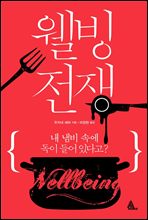55 Brilliant Advertising Posters With High Impact

'Interesting > Impressive Advertisements' 카테고리의 다른 글
| 55 Brilliant Advertising Posters With High Impact (0) | 2016.12.23 |
|---|---|
| 55 Brilliant Advertising Posters With High Impact (0) | 2016.12.22 |
| 55 Brilliant Advertising Posters With High Impact (0) | 2016.12.20 |
| 55 Brilliant Advertising Posters With High Impact (0) | 2016.12.19 |
| 55 Brilliant Advertising Posters With High Impact (0) | 2016.12.16 |
사업가와 장사꾼의 차이
공자는 사업을 하늘과 땅이 서로 거들어서
천하의 백성에게 베푸는 것이라 정의했습니다.
사업은 많은 사람들에게 크게 베푸는 일이라는 거죠.
자기 이익만을 좇아 단지 돈을 버는 일은
사업이 아니라 장사입니다.
돈도 벌면서 돈 이상의 가치와
사람을 함께 버는 일을 사업이라고 합니다.
- ‘CEO 박도봉의 현장인문학’에서

'Interesting > Quote' 카테고리의 다른 글
| 먼저 행동하면 생각이 따라 변한다 (0) | 2016.12.23 |
|---|---|
| 말은 몸속으로 들어온다 (0) | 2016.12.22 |
| 힘들어야 위대해진다 (0) | 2016.12.20 |
| 미쳤다는 건 칭찬이다 (0) | 2016.12.19 |
| 현명한 사람에게는 일곱 가지 특징이 있다 (0) | 2016.12.16 |
건강 중독의 시대, 강박과의 전쟁

오늘날 사람들은 먹을것이 부족해서 걱정할 일은 없어졌다. 인류의 역사를 되짚어 봤을 때 인류의 생존을 위협하는 여러가지 것들 중 단연 먹을거리의 부족에 대한 것이 가장 큰 근심거리였을 것이다. 하지만 불과 100년 사이에 인류는 품종개량 및 생산성 향상, 각종 과학기술의 도입으로 그어느 때 보다 풍요로운 삶을 살 수 있게 되었다. 하지만 먹을거리에 대한 고민은 단순히 먹을거리가 많아진 것에서 해결되지 않았다. 옛 사람들이 보면 배부른 소리일 것이 분명한 현대인들의 먹을거리에 대한 고민은 단연 웰빙이다. 풍족해진 자원과 먹거리 덕분에 사람들의 관심은 자연스럽게 건강쪽으로 더 많이 기울었는데 이 건강을 유지하기 위한 수단으로 먹거리를 골라먹기 시작한 것이다. 다이어트를 비롯하여, 채식, 무탄수화물, 글루텐프리, 친환경농산물 등 이제 사람들은 넘쳐나는 먹거리 속에서 더 좋은 먹거리를 찾기위해 혈안이 되어 있다. 하지만 각종 매스컴에서 다소 과장되게 홍보하는 이러한 먹거리는 과연 우리가 아무런 의심없이 먹어도 되는 것이며 그러한 먹거리 외의 먹거리들은 그들이 말하듯 우리의 인체에 치명적이고 우리의 건강을 해치는 것일까?

이러한 의문에 답하는 책이 여기 있다. <웰빙전쟁>은 강렬한 붉은색의 책 표지와 독이 들어있을 것 같은 냄비의 이미지를 내새워 그 제목과 함께 언뜻보면 다른 매체들이 강조하는 것 처럼 가려먹어야 할 것들을 강조할 것 같이 보이는 책이지만 실상은 그와 정반대이다. 오히려 현대인들이 대부분의 사람들이 먹어도 무탈한 것들, 즉 소수에게만 적용되는 금지 식품들을 마치 우리 모두 먹어서는 안될 독처럼 여기며 먹지말아야 할 식품과 먹어야 할 식품을 신봉하듯이 쫓는 현상에 대해 일침을 가하는 책이다. 소위 먹지 말아야 하는 강박과의 전쟁에서 우리가 어떻게 대처해야 하는지에 대해 저자가 가지고 있는 박식한 지식과 통념적인 생각을 더해 차분하게 설명해주고 있다.

너무 많이 아는 것은 오히려 독이 된다고 했던가? 저자가 책에서 소개했던 구글링에 대한 사례는 우리 주변에서도 쉽게 찾아볼 수 있다. 우리는 자신의 신체에 나타나는 증상을 우리는 쉽게 포털사이트에서 검색해 보고 그 증상과 유사한 증상들에 대한 사례 및 진단 처방 등을 쉽게 찾아낼 수 있다. 하지만 이러한 진단 및 처방은 전혀 전문적이지 않은 그리고 다방면으로 고려해 보지 않은 행위로서 우리를 더 위험하게 만들 수 있다. 우리는 어쩌면 의사를 만나는 시간보다 검색을 하는 시간에 더욱 익숙해져 가고 있는지 모르겠다. 음식에 대한 지식도 마찬가지다. 비전문가의 비전문적인 지식 뿐만 아니라 식품회사의 과대 광고에 우리 자신을 전혀 필요치 않은 걱정거리에 몰아넣고 있지 않은지 심각하게 돌이켜 보아야할 것 같다.

100세시대를 살고 있는 우리는 단순히 의학의 발달만으로 수명이 연장되었다고 생각할 순 없을 것이다. 분명 우리는 과거에 비해 풍족한 먹거리를 즐길 수 있는 시대에 살고 있으며 즐겁게 그리고 걱정없이 먹는 행위들이 의학의 발달과 함께 우리의 수명을 연장해준 요인일 것이다. 꼭 유난떨지 않더라도 우리의 기호에 따라 무엇이든 과하지 않게 즐겁게 먹고 생활하는 것이 진정한 웰빙이 아닐까 싶다. 영양에 대한 잘못된 편견을 가지고 있거나 영양의 진실에 대해 궁금해 할 사람이라면 꼭 읽어봐야할 책으로 추천한다.

'My Life > Book' 카테고리의 다른 글
| 예술가가 된 꼬마 아이들 (0) | 2016.12.23 |
|---|---|
| 알짜배기 창업법률 (0) | 2016.12.21 |
| For golfer Lydia Ko, a year-end filled with separation woes (0) | 2016.12.19 |
| 보고 듣는 EBS 어학 FM - EASY ENGLISH 12월호 (0) | 2016.12.16 |
| 남을 돕는 것이 자신을 돕는 것이다 (0) | 2016.12.16 |
たたかう (戦う): 타타카우 (싸우다)
この戦(たたか)いは意味(いみ)がない。: 이 싸움은 의미 없다.
戦(たたか)わないでください。: 싸우지 말아 주세요.
戦(たたか)ってみる価値(かち)はある。: 싸워볼 가치는 있다.

'Study > Japanese' 카테고리의 다른 글
| ゆるす (許す): 유루스 (용서하다) (0) | 2016.12.22 |
|---|---|
| にらむ (睨む): 니라무 (쏘아보다 / 노려보다) (0) | 2016.12.21 |
| うたがう (疑う): 의심하다 (우타가우) (0) | 2016.12.19 |
| おちつく (落ち着く): 오치츠쿠 (자리잡다 / 정착하다) (0) | 2016.12.16 |
| まげる (曲げる): 마게루 (구부리다 / 굽히다) (0) | 2016.12.15 |
New electricity pricing goes into effect
The government finalized a new household electricity billing system that will lower the average bill by 11.6 percent - and cut bills in half for some heavy users. It goes into effect with this month’s power bills. The Ministry of Trade, Industry and Energy submitted three alternate sets of revisions to the National Assembly and lawmakers approved the third proposal, which reduces the number of electricity usage levels from six to three and the difference between the starting rate and the highest rate from 1,110.7 percent to 300 percent. This is the first time in 12 years the government revised the progressive billing system, which became a major issue this summer after a major heat wave led to monster power bills. “We have reviewed changes in consumption and the number of household members and came up with the new billing system,” said Shin Yong-min, a director at the Trade Ministry. “No households will experience more financial burden from the new system and I believe they will save 11.6 percent on average and as high as 14.9 percent during summer and winter.”
Currently there are six levels. Korean households pay 60.7 won (5 cents) per kilowatt of electricity for the first 100 kilowatts in a month. The price goes up to 125.9 won for the next 100 kilowatts per month and as high as 709.5 won per kilowatt - or 1,110.7 percent more than the starting price - in the highest range. Under the new system, households will pay 93.3 won per kilowatt for the first 200 kilowatts in a month. The price will go up to 187.9 won for the next 200 kilowatts per month and to 280.6 won per kilowatt for usage over 401 kilowatts a month, or 300 percent more than the starting price. Households that consume 350 kilowatts a month will pay 55,080 won, down 12 percent from the 62,910 won they currently pay. That’s a savings of 7,830 won. “We will also give discounts to those who consume lesser amounts of electricity and penalties to those who consume large amount of energy to have people participate in saving energy,” said Shin.
According to the Trade Ministry, the government plans to give 10 percent discounts to households that use 20 percent less energy when compared to their average consumption of the past two years. It will give 15 percent off for such households during summer and winter. For those who consume more than 1,000 kilowatts per month, the government will charge 709.5 won per kilowatt during summers and winters, which is some 77 percent higher than the highest rate in the old system. The government also announced that it plans to give more financial benefits to people in lower income groups and socially disadvantaged groups, such as the disabled and large families.
The government currently gives 8,000 won monthly discounts to low-income groups, which will be doubled to 16,000 won. During summers, the ministry said it will give 20,000 won discounts. Families with a large number of members, or more than three children, will enjoy 30 percent discounts on their electricity bills, up from 20 percent. On top of household electricity bills, the Trade Ministry announced that it will give cuts in power rates for schools. The ministry said it will give 20 percent cuts for elementary schools, middle schools and high schools. “We will give 50 percent discounts to them during summers and winters, which is higher than the current 15 percent,” said Shin. As the new plan will lower power bills by 11.6 percent, on average, the government estimated that the Korea Electric Power Corporation, the sole power distributor, will see a drop of 939.3 billion won in its annual sales.

'Study > English' 카테고리의 다른 글
| Avian flu outbreak reaches Korea’s duck center (0) | 2016.12.22 |
|---|---|
| Korean diplomat in Chile caught sexually harassing underage girls (0) | 2016.12.21 |
| Korean students’ scores take tumble on PISA assessment (0) | 2016.12.16 |
| Korean auto exports rebound after 13 months of declines (0) | 2016.12.15 |
| More imported cars face sales ban (0) | 2016.12.09 |
55 Brilliant Advertising Posters With High Impact

'Interesting > Impressive Advertisements' 카테고리의 다른 글
| 55 Brilliant Advertising Posters With High Impact (0) | 2016.12.22 |
|---|---|
| 55 Brilliant Advertising Posters With High Impact (0) | 2016.12.21 |
| 55 Brilliant Advertising Posters With High Impact (0) | 2016.12.19 |
| 55 Brilliant Advertising Posters With High Impact (0) | 2016.12.16 |
| 55 Brilliant Advertising Posters With High Impact (0) | 2016.12.15 |
힘들어야 위대해진다
연습이 즐겁다면 성장하고 있는 것이 아니다.
근육이 자라려면 긴장과 부담을 통해
근섬유가 찢어져 늘어나야 한다.
기술과 지식이 개발되는 방식도 똑같다.
고통을 헤치고 숙련을 향해 매진하는 사람에게 영광이 있다.
자기 노력의 극한까지 가야한다.
녹초가 될 정도로 기를 쓰지 않는다면
충분히 노력하는 게 아니다.
- 제프 고인스, ‘일의 기술’에서

'Interesting > Quote' 카테고리의 다른 글
| 말은 몸속으로 들어온다 (0) | 2016.12.22 |
|---|---|
| 사업가와 장사꾼의 차이 (0) | 2016.12.21 |
| 미쳤다는 건 칭찬이다 (0) | 2016.12.19 |
| 현명한 사람에게는 일곱 가지 특징이 있다 (0) | 2016.12.16 |
| 크게 성공한 사람이 크게 실패한다 (0) | 2016.12.15 |
うたがう (疑う): 의심하다 (우타가우)
彼(かれ)は私(わたし)を疑(うたが)っている。: 그는 나를 의심하고 있다.
耳(みみ)を疑(うたが)ってしまった。: 귀를 의심하고 말았다.
疑(うたが)わないでください。: 의심하지 말아 주세요.

'Study > Japanese' 카테고리의 다른 글
| にらむ (睨む): 니라무 (쏘아보다 / 노려보다) (0) | 2016.12.21 |
|---|---|
| たたかう (戦う): 타타카우 (싸우다) (0) | 2016.12.20 |
| おちつく (落ち着く): 오치츠쿠 (자리잡다 / 정착하다) (0) | 2016.12.16 |
| まげる (曲げる): 마게루 (구부리다 / 굽히다) (0) | 2016.12.15 |
| きる (着る): 키루 (입다) (0) | 2016.12.09 |
For golfer Lydia Ko, a year-end filled with separation woes
Lydia Ko, the world’s top professional female golfer, is making some big changes ahead of next year’s season. Not only has the Korean-New Zealander changed her caddie, Jason Hamilton, she also recently parted with her swing coach David Leadbetter. Ko will also be playing with a new set of golf clubs next year, after recently signing a contract with equipment maker PXG. Concerns arose that the 19-year-old golfer might be pursuing too much change at once, but Ko doesn’t seem to have any worries. “My performance started lagging around the midseason this year, but I’m going to get back on track starting next year,” Ko told the JoongAng Ilbo last Friday while she was at a club fitting shop in Gangnam District, southern Seoul. “I really like my new clubs.”
With her sticks set, Ko just has to decide on which golf balls to use. She is currently dithering over two manufacturers (which she would not name). “Company A’s balls go further with irons, but Company B’s balls fly longer with drivers. I’ll have to test them a little more to make a final decision.” When asked about her new caddie, Ko said, “I felt it would be inappropriate to scout a different player’s caddie, so I recruited someone from the PGA Tour. We get along well, and he’s an able man, too, so I like him.” If there is one man who’s concerned about Ko, it’s Leadbetter, the British coach who taught Ko for the last three years. In an interview with the Golf Digest on Sunday, Leadbetter blamed her “meddlesome parents” for her recent slump. After failing to win gold in the Rio Olympics, her biggest goal this year, Ko started performing worse as her father became more involved, Leadbetter said while recalling how he tried to put a stop to it. Leadbetter added that the timing of Ko’s parting with her caddie Hamilton “didn’t make any sense,” since she had just three weeks ahead of her to compete for the title of Rolex Player of the Year.
Despite the breakup, Leadbetter is still notably concerned about the young golfer. “The proposed solution is always to hit more and more balls, when Lydia actually needed to be on the practice range less and in the gym more,” the coach said, recalling how Ko’s father only prescribed her more swing practice. “The truth is, she’s a great golfer, but not a great athlete. To keep up her performance, she needs to keep up her strength and flexibility, or it affects her swing and her energy.” In late November, Ko started in the CME Group Tour Championship, considered the season finale, with a 4-under 68, following Leadbetter’s instructions. Ko then recorded a 62 on the second round, but her scores went downhill after her father stepped in on the third and fourth day. The interference cost Ko both the Player of the Year title and the Vare Trophy, which is given to the player with the lowest average score in the season.
“They tell her when to go to bed, what to eat, what to wear, when to practice and what to practice. And they expect her to win every tournament,” said Leadbetter, lamenting how Ko was unable to trust herself enough because of her parents’ influences. “They are good people, who love their daughter and want the very best for her, and Lydia has never been to college and is still young. But they are naive about golf.” “When she was poised to go forward, as she always has, she went backward,” the coach said, adding that “they’ve got to let the bird fly from the nest.” Ko has kept silent on Leadbetter’s comments, while one of her associates said they “did not feel the need to respond.” “The reason for the decline in the later rounds of the Rio Olympics was because she was going through a tight schedule,” the associate said, “and she had been having some confusion with Leadbetter’s eccentric swings and returning to standard swings. While Lydia Ko does listen to her parents, she’s the one making the decisions. Next year’s performances will prove so.”

'My Life > Book' 카테고리의 다른 글
| 알짜배기 창업법률 (0) | 2016.12.21 |
|---|---|
| 건강 중독의 시대, 강박과의 전쟁 (0) | 2016.12.20 |
| 보고 듣는 EBS 어학 FM - EASY ENGLISH 12월호 (0) | 2016.12.16 |
| 남을 돕는 것이 자신을 돕는 것이다 (0) | 2016.12.16 |
| 5~7세, 초등 입학전 어휘를 잡자! (0) | 2016.12.15 |
55 Brilliant Advertising Posters With High Impact

'Interesting > Impressive Advertisements' 카테고리의 다른 글
| 55 Brilliant Advertising Posters With High Impact (0) | 2016.12.21 |
|---|---|
| 55 Brilliant Advertising Posters With High Impact (0) | 2016.12.20 |
| 55 Brilliant Advertising Posters With High Impact (0) | 2016.12.16 |
| 55 Brilliant Advertising Posters With High Impact (0) | 2016.12.15 |
| 55 Brilliant Advertising Posters With High Impact (0) | 2016.12.09 |




 영양에 대한 잘못된 편견을 가지고 있거나 영양의 진실에 대해 궁금해 할 사람이라면 꼭 읽어봐야할 책으로 추천한다.
영양에 대한 잘못된 편견을 가지고 있거나 영양의 진실에 대해 궁금해 할 사람이라면 꼭 읽어봐야할 책으로 추천한다.